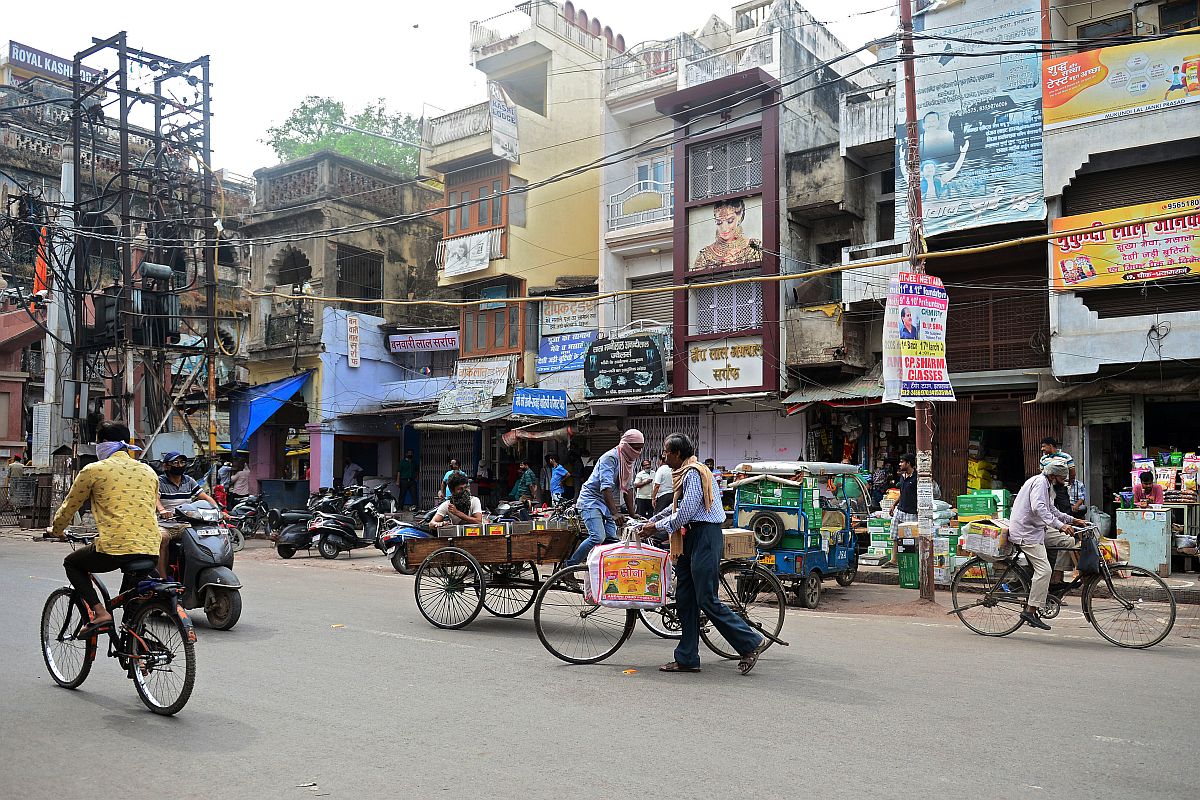Policy balance
The recent appointment of Sanjay Malhotra as Governor of the Reserve Bank of India (RBI), replacing Shaktikanta Das, signals a pivotal shift in India’s monetary policy dynamics.
Meanwhile, these relaxations do not apply to hotspots and containment zones as demarcated by state, UT and district administrations.

People make their way along a street in a market area during the nationwide lockdown in Allahabad. (Photo: AFP)
In a late night order, the Government on Friday allowed opening of shops as part of the easing of lockdown restrictions announced on April 15.
The Ministry of Home Affairs in an order said that all shops registered under the Shops and Establishment Act of the respective State and Union Territory, including those in residential complexes and market complexes outside the limits of municipal corporations and municipalities, have been allowed with 50 per cent strength of workers, making wearing of masks and social distancing mandatory.
Advertisement
The other inclusion is the smaller shops in the neighbourhood areas and residential areas which are now allowed to operate within the city. It includes all shops including neighbourhood shops and standalone shops, shops in residential complexes, within the limits of municipal corporations.
Advertisement
However, no shops have been permitted to open in multi-brand or single brand malls.
It has also clarified that sale by E-commerce companies will continue to be permitted for essential goods only. Also, sale of liquor and other items continue to be prohibited as specified in the National Directives for COVID-19 management.
Meanwhile, these relaxations do not apply to hotspots and containment zones.
On April 15, the government had notified the industries and commercial establishments which can open in certain zones where there are no or less Coronavirus cases.
These relaxations are given by the state governments depending on the situation in a particular area.
The latest order has been sent to the Chief Secretaries of the states and administrators of the Union Territories and is in continuation of the guidelines for the enforcement of lockdown.
This order carries out amendments in the order issued on April 15, which detailed which industries and commercial establishments can open with safeguards. In a modification of the earlier order, the Ministry of Home Affairs has replaced the term “shopping complexes” with “market complexes” within the limits of municipal corporations and “municipalities”.
#COVID19 update
All registered shops regd under Shops & Establishment Act of respective States/ UTs, including shops in residential complexes, neighborhood & standalone shops exempted from #lockdown restrictions.Prohibited: Shops in single & multi brand malls pic.twitter.com/NNz9abgWdA
— Spokesperson, Ministry of Home Affairs (@PIBHomeAffairs) April 24, 2020
One reason could be that if the industries open, the retail end of the supply chain has to be available for consumption purposes. It will also aid gradual pickup in the economic activities.
Earlier on April 21, the Government said it has allowed additional agricultural and forestry items and opening of shops for school and college books and electric fans during the Coronavirus lockdown, which ends on May 3.
Further, the MHA has also issued SOPs on sign-on/sign-off for Indian seafarers at Indian ports and their movement for the same.
Also, in-house care-givers of senior citizens, prepaid mobile recharge utilities, food-processing units in urban areas have been exempted from lockdown restrictions to fight COVID-19.
In the revised consolidated guidelines issued on April 19, the Government had said, to mitigate hardship to the public, select additional activities will be allowed with effect from April 20.
India’s total number of Coronavirus positive cases rose to 24,506 on Friday including 775 deaths. 1,429 new COVID-19 cases and 57 deaths have been reported in the last 24 hours.
Advertisement